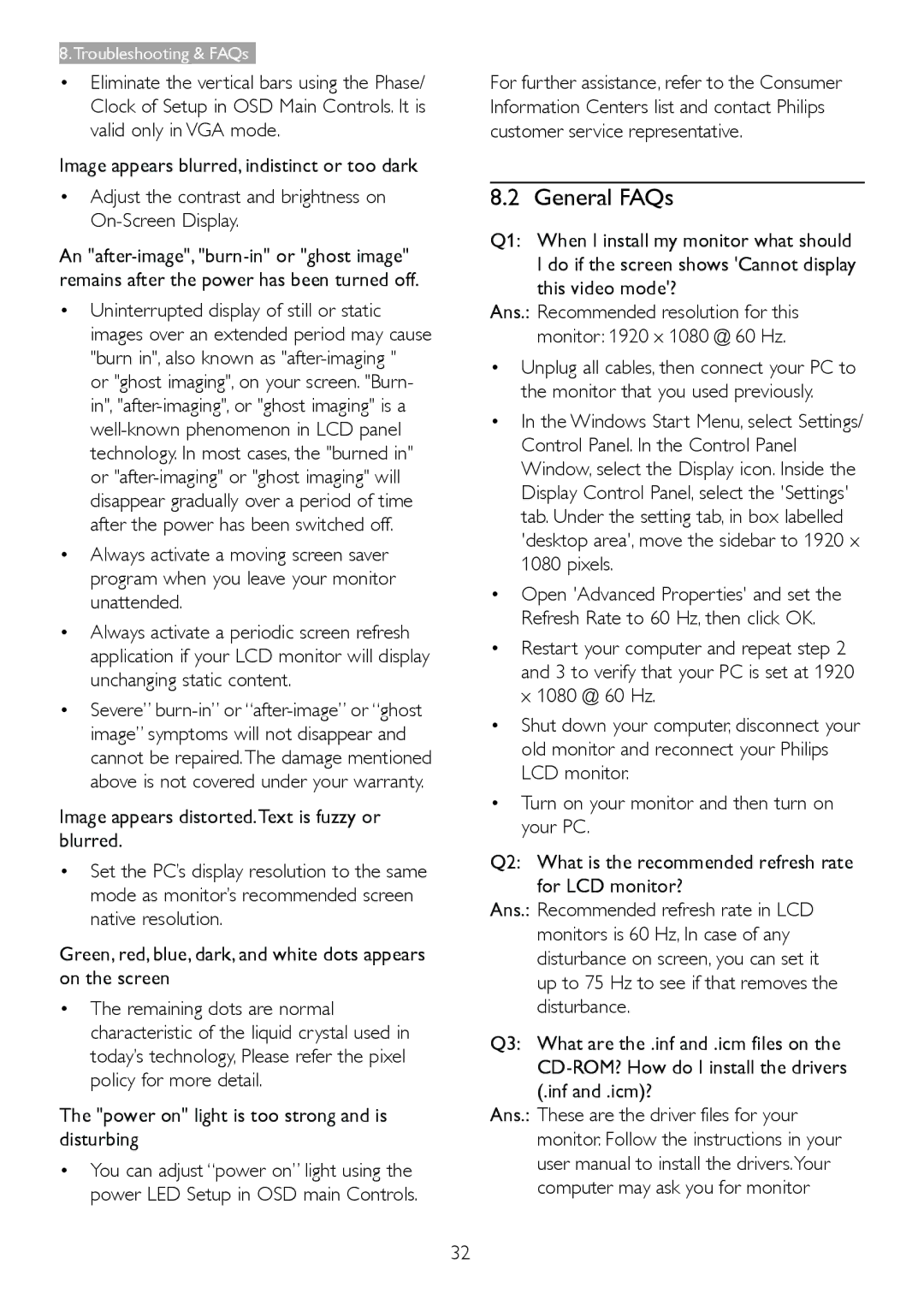
8.Troubleshooting & FAQs
•Eliminate the vertical bars using the Phase/ Clock of Setup in OSD Main Controls. It is valid only in VGA mode.
Image appears blurred, indistinct or too dark
•Adjust the contrast and brightness on
An
•Uninterrupted display of still or static images over an extended period may cause "burn in", also known as
or "ghost imaging", on your screen. "Burn- in",
•Always activate a moving screen saver program when you leave your monitor unattended.
•Always activate a periodic screen refresh application if your LCD monitor will display unchanging static content.
•Severe”
Image appears distorted.Text is fuzzy or blurred.
•Set the PC’s display resolution to the same mode as monitor’s recommended screen native resolution.
Green, red, blue, dark, and white dots appears on the screen
•The remaining dots are normal characteristic of the liquid crystal used in today’s technology, Please refer the pixel policy for more detail.
The "power on" light is too strong and is disturbing
•You can adjust “power on” light using the power LED Setup in OSD main Controls.
For further assistance, refer to the Consumer Information Centers list and contact Philips customer service representative.
8.2 General FAQs
Q1: When I install my monitor what should I do if the screen shows 'Cannot display this video mode'?
Ans.: Recommended resolution for this monitor: 1920 x 1080 @ 60 Hz.
•Unplug all cables, then connect your PC to the monitor that you used previously.
•In the Windows Start Menu, select Settings/ Control Panel. In the Control Panel Window, select the Display icon. Inside the Display Control Panel, select the 'Settings' tab. Under the setting tab, in box labelled 'desktop area', move the sidebar to 1920 x 1080 pixels.
•Open 'Advanced Properties' and set the Refresh Rate to 60 Hz, then click OK.
•Restart your computer and repeat step 2 and 3 to verify that your PC is set at 1920 x 1080 @ 60 Hz.
•Shut down your computer, disconnect your old monitor and reconnect your Philips LCD monitor.
•Turn on your monitor and then turn on your PC.
Q2: What is the recommended refresh rate for LCD monitor?
Ans.: Recommended refresh rate in LCD monitors is 60 Hz, In case of any disturbance on screen, you can set it up to 75 Hz to see if that removes the disturbance.
Q3: What are the .inf and .icm files on the
Ans.: These are the driver files for your monitor. Follow the instructions in your user manual to install the drivers.Your computer may ask you for monitor
32
